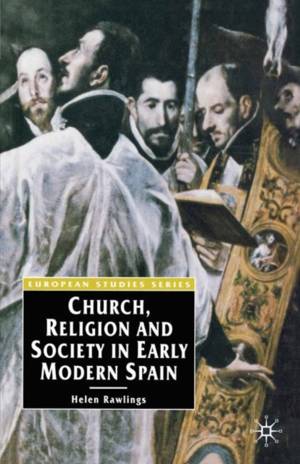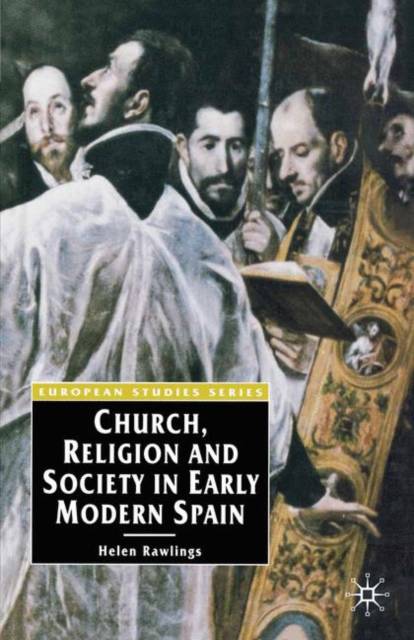
En raison d'une grêve chez bpost, votre commande pourrait être retardée. Vous avez besoin d’un livre rapidement ? Nos magasins vous accueillent à bras ouverts !
- Retrait gratuit dans votre magasin Club
- 7.000.000 titres dans notre catalogue
- Payer en toute sécurité
- Toujours un magasin près de chez vous
En raison de la grêve chez bpost, votre commande pourrait être retardée. Vous avez besoin d’un livre rapidement ? Nos magasins vous accueillent à bras ouverts !
- Retrait gratuit dans votre magasin Club
- 7.000.0000 titres dans notre catalogue
- Payer en toute sécurité
- Toujours un magasin près de chez vous
Description
The early modern Spanish Church has long been associated with religious and racial intolerance, the brutality of the Inquisition, the repression of intellectual and spiritual freedom, and the fervour and fanaticism that underpinned Spanish imperialism.
However, behind Spain's identification with orthodoxy, regulation and discipline in religious life, there lay a contrasting image that modern historians have only recently begun to explore. Helen Rawlings argues convincingly that there is now sufficient evidence to point to the survival of multi-cultural influences in Spanish society, the extent of innovative trends in religious scholarship, the vitality of popular religious culture, the failure of aspects of ecclesiastical reform and the shortcomings of Spain's missionary enterprise overseas. In this invaluable new study, Rawlings evaluates modern approaches to the history of the early modern Spanish Church and examines the results of new research carried out in the field. As well as challenging some of the findings of traditional scholarship, the author assesses and explores the strengths, weaknesses and contradictions inherent in Spain's identification with Catholicism.Spécifications
Parties prenantes
- Auteur(s) :
- Editeur:
Contenu
- Nombre de pages :
- 185
- Langue:
- Anglais
- Collection :
- Tome:
- n° 1
Caractéristiques
- EAN:
- 9780333636954
- Date de parution :
- 01-07-02
- Format:
- Livre broché
- Format numérique:
- Trade paperback (VS)
- Dimensions :
- 142 mm x 215 mm
- Poids :
- 263 g

Les avis
Nous publions uniquement les avis qui respectent les conditions requises. Consultez nos conditions pour les avis.






